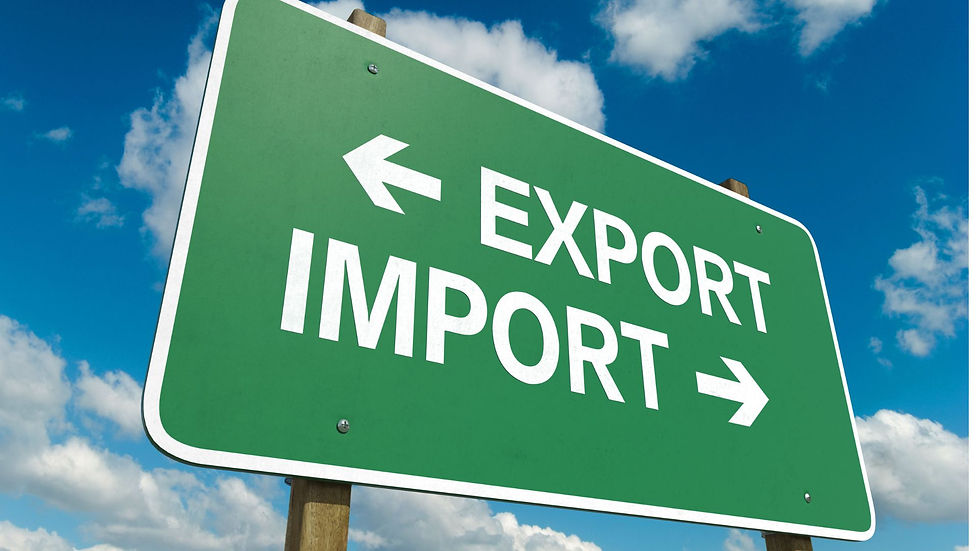Why Buyers in the US Are Turning to Southeast Asia for Frozen Seafood in 2025
- CMDX Global

- Jun 24, 2025
- 3 min read
The US remains one of the world’s largest seafood markets — but where that seafood comes from is shifting. In 2025, more US buyers are turning their attention to Southeast Asia, particularly countries like Vietnam, Indonesia, and Thailand. And it’s not just about price. It’s about supply reliability, product versatility, and better exporter partnerships.
In this article, we break down why US seafood buyers are pivoting to Southeast Asia, what’s driving the demand, and how to source safely in this evolving landscape.
✅ 1. Supply Chain Diversification After 2020–2023 Disruptions
Between the pandemic, freight volatility, and geopolitical tensions, many US importers learned a tough lesson: relying on just one region (like China or South America) created bottlenecks and backlogs.
Southeast Asia offers an alternative with fewer trade restrictions, and countries like Vietnam have built strong reputations for reliable processing, port access, and product variety.
CMDX is a US-based company with sourcing operations in Vietnam and a logistics hub in Rotterdam — giving buyers access to Southeast Asia’s top seafood processors with Western-level communication and support.
✅ 2. Competitive Pricing Without Compromising Quality
Buyers are price-sensitive — but not at the cost of safety or consistency. Southeast Asia is increasingly seen as the sweet spot for:
Cost-effective protein (e.g., pangasius, tilapia, vannamei shrimp)
Strong food safety frameworks (HACCP, ASC, BRC-certified plants)
Lower labor and operational costs than the US, Canada, or Europe
US buyers looking to protect margin while maintaining standards find Southeast Asian suppliers particularly attractive.
✅ 3. Species That Fit the US Market
Some of the most in-demand frozen seafood products in the US are Southeast Asia’s specialties:
Pangasius – affordable, white, boneless fillets for foodservice & retail
Vannamei Shrimp – versatile formats like HOSO, PDTO, peeled & deveined
Tilapia – clean flavor profile, often preferred for frozen meal prep
Squid & Cuttlefish – growing popularity in retail and restaurant formats
These products ship well, freeze well, and work for both private label and branded products.
✅ 4. Fast Turnaround and Flexible MOQs
Unlike larger players who require massive volumes, Vietnamese and Thai processors are often open to smaller container orders, making it easier for:
Mid-size importers
New market entrants
Distributors testing new SKUs
CMDX, for example, provides flexible trial orders with full traceability — ideal for buyers testing Southeast Asia for the first time.
✅ 5. Regional Support & Communication
Language barriers, slow email replies, or poor documentation can cause massive delays in US customs. That’s why Southeast Asian exporters with experienced trade managers, fluent communication, and 24h responsiveness are now in high demand.
CMDX offers all documentation in English, includes optional USDA label formats, and provides port-of-arrival coordination if required.
⚠️ What US Buyers Still Need to Watch Out For:
Glaze inflation — always confirm net weight and IQF specs
Cert verification — only buy from FDA-registered, HACCP-certified plants
Shipping reliability — ensure the exporter has port access + cold chain control
CMDX helps buyers navigate all of the above — from documentation to reefer tracking.
🧭 Final Thoughts: The Smart Buyer’s Pivot
Southeast Asia isn’t just a backup plan anymore — it’s becoming the preferred sourcing hub for frozen seafood in the US. With cost savings, product reliability, and growing exporter professionalism, the region offers smart opportunities for importers looking to stay competitive in 2025.
💡 CMDX is already helping US buyers secure flexible seafood supply from Southeast Asia. Want to explore options? Get in touch for trial orders, specs, and certifications.



Comments